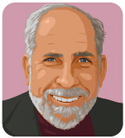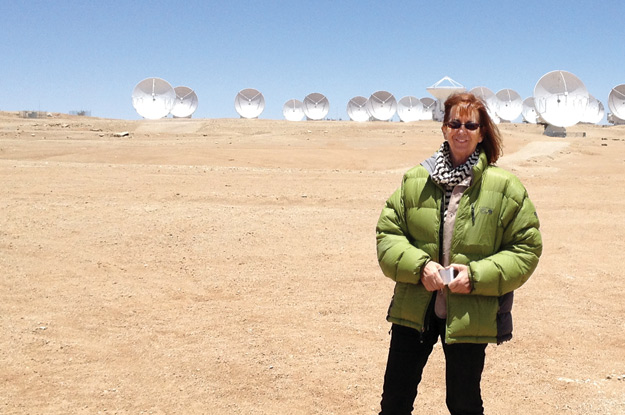See the rest of the AQ Top 5
Astronomy was an old boys’ club in Chile when María Teresa Ruiz González fell in love with the stars. Spending long, cold nights huddled around a telescope in a remote desert observatory was not believed to be women’s work. “We were considered a distraction,” recalled Ruiz, who is now the first woman to head the Chilean Academy of Sciences.
Some distraction. Ruiz’s meteoric rise to the top of Chile’s science establishment capped a 40-year career of firsts: first woman to take a degree in astronomy at the University of Chile, first female recipient of a Ph.D. in astrophysics at Princeton University, first woman to receive her country’s National Award for Exact Sciences. But equally impressive are Ruiz’s accomplishments as a scientist, which have helped make her country a world leader in astronomy. Her 1997 discovery of Kelu 1, a brown dwarf, showed that star formation occurred earlier than anyone suspected, adding weight to subsequent Chilean research into the origins of the universe.
Ruiz’s talent for challenging preconceived notions developed early. “It used to bother people that I asked so many questions,” she told AQ. The gift of a chemistry set when she was 13 ignited a passion for experimentation — “I actually tried to turn water into wine” — but a visit with a friend to one of Chile’s mountaintop observatories as an undergraduate transformed her life. “He put me behind a telescope in the dark and I was riveted,” she recalled. “I realized I was an inhabitant of the universe, and not just a single country.”
But that country mattered. Chile’s top spot in the study of the heavens is partly a result of geography. The skies over its high, dry and remote Andean deserts are so free of pollution from manmade light sources that a lobbying campaign to declare them a protected UNESCO World Heritage site is underway. The world’s largest astronomical project, known by its acronym as ALMA, an array of 66 antennas accurate enough to pick out a golf ball at 10 miles away, was inaugurated on Chile’s Chajnantor Plateau in 2013. More megaprojects are planned. Within the next five years, Chile is expected to host over 70 percent of the world’s stargazing infrastructure. “If you want to be an astronomer, you need to go to Chile,” said Ruiz.
It also still helps to be male. Ruiz is encouraged by the growing number of women attending her classes at the University of Chile, but she said the barriers preventing females from advancing in science in Latin America are often psychological. “For many people the sheer amount of time you need to devote to research conflicts with women’s obligations as homemakers and mothers,” said Ruiz, who has raised one son with her physicist husband. “I’ve tried very hard to show you can be a scientist and a normal human being.” Nevertheless, her attention has turned from challenging sexism to battling government budget-cutters. “In Chile we still only devote 0.35 percent of our GNP to science,” she said. The lack of support for pure research, she added, is one reason why more than half of astronomers currently working in Chile today are foreigners.
Ruiz, 69, believes exposing more Chileans to science at a young age will make a difference. After her three-year Academy term ends in 2018, she plans to work on science curricula for elementary and high school teachers and write children’s science books. “Science is an antidote to magical thinking,” said Ruiz. Like turning water into wine.
—
Handelman is the managing editor of AQ and director of the Center on Media, Crime and Justice at John Jay College of Criminal Justice in New York.






